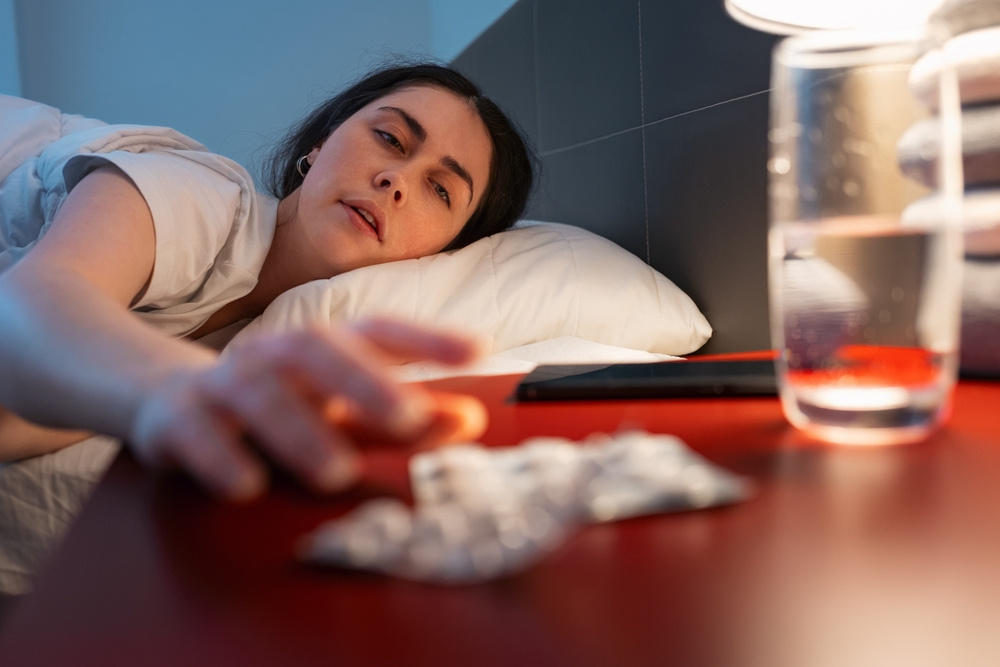Zopiclone, a widely prescribed sedative for insomnia, is designed to help users fall asleep quickly. But what happens when you fight its effects and stay awake? As a medical content expert, I’ll unpack the science, risks, and long-term consequences of this dangerous practice going beyond basic warnings to provide actionable insights for patients and caregivers.
How Zopiclone Works (And Why Staying Awake Defeats Its Purpose)
- Mechanism of Action: Zopiclone enhances GABA, a neurotransmitter that slows brain activity. Unlike benzodiazepines, it selectively targets GABA-A receptors linked to sedation.
- Half-Life & Metabolism: With a 5-hour half-life, Zopiclone’s effects linger even if you resist sleep, leading to “hangover” drowsiness the next day.
- The Paradox of Staying Awake: Fighting sedation triggers adrenaline release, causing paradoxical anxiety, confusion, or hallucinations.
Immediate Risks of Staying Awake on Zopiclone
- Cognitive Impairment:
- Reduced reaction time (comparable to a 0.05% blood alcohol level).
- Memory gaps or anterograde amnesia (e.g., forgetting conversations).
- Physical Dangers:
- Increased fall risk (studies show a 50-60% higher fracture risk in elderly users).
- Impaired coordination (e.g., accidents while driving or operating machinery).
- Psychological Effects:
- Dissociative states, depersonalization, or panic attacks.
- Rare but severe cases of complex sleep behaviors (e.g., sleepwalking, binge eating).
Long-Term Consequences
- Tolerance & Dependency: Chronic use (>2–4 weeks) reduces efficacy, pushing users to higher doses.
- Sleep Architecture Disruption: Zopiclone suppresses REM sleep; staying awake compounds sleep deprivation, worsening fatigue and mental health.
- Withdrawal Risks: Abrupt cessation after prolonged use can cause rebound insomnia, tremors, or seizures.
Real-Life Case Studies
- Case 1: A 34-year old patient took Zopiclone 7.5mg but stayed awake to meet a deadline. They experienced confusion, burned food on the stove, and had no memory of the incident.
- Case 2: An elderly user fought drowsiness, fell, and fractured a hip—leading to prolonged hospitalization.
Safer Alternatives to Zopiclone
- Behavioral Interventions:
- Cognitive Behavioral Therapy for Insomnia (CBT-I): Gold-standard for long-term results.
- Sleep hygiene tips (e.g., dark rooms, consistent schedules).
- Pharmacological Alternatives:
- Short-term melatonin agonists (e.g., ramelteon).
- OTC options like antihistamines (with caveats).
- Mind-Body Practices:
- Mindfulness meditation, progressive muscle relaxation.
What to Do If You’ve Taken Zopiclone and Can’t Sleep
- Don’t Panic: Avoid activities requiring focus (driving, cooking).
- Seek Support: Contact a trusted person to monitor you.
- Hydrate & Rest: Flush your system with water and lie in a safe, dark space.
Visual Elements to Enhance Understanding
- Infographic: Zopiclone’s pathway in the body and risk timeline.
- Comparison Table: Zopiclone vs. other sedatives (e.g., zolpidem, trazodone).
FAQs
Can I mix Zopiclone with alcohol to sleep faster?
Never. Alcohol amplifies sedation, increasing overdose and respiratory failure risk.
What if I accidentally stay awake after a dose?
Skip the next dose, doubling up can lead to toxicity.
What is Zopiclone used for?
Zopiclone is a prescription medication primarily used to treat short-term insomnia (difficulty falling or staying asleep). It belongs to the “Z-drug” class of sedatives and works by calming overactive brain activity to promote sleep. It is not intended for chronic insomnia or anxiety management.
How long does Zopiclone take to work?
Zopiclone typically takes 30–60 minutes to induce drowsiness. For best results, take it on an empty stomach right before bedtime. Avoid eating a heavy meal beforehand, as this can delay absorption and reduce effectiveness.
Can Zopiclone cause sleepwalking?
Yes. Zopiclone and other Z-drugs are linked to complex sleep behaviors, including sleepwalking, sleep-eating, or even sleep-driving. These occur when the brain is partially sedated but the body remains active. Discontinue use immediately if you experience these side effects and consult your doctor.
Can you buy Zopiclone online?
Legally, Zopiclone requires a prescription in most countries. While some websites sell it without a prescription. Counterfeit pills may contain harmful additives, incorrect dosages, or no active ingredient at all. Always obtain medications through a Online Medical Supply UK pharmacy.
Is it safe to take Zopiclone every night?
No. Zopiclone is approved for short-term use (usually 2–4 weeks). Daily use can lead to tolerance (needing higher doses for the same effect), dependency, and withdrawal symptoms upon stopping. For chronic insomnia, opt for non-drug therapies like CBT-I (Cognitive Behavioral Therapy for Insomnia).
What should I do if Zopiclone stops working?
Do not increase your dose without medical guidance. Tolerance is common with prolonged use. Instead, consult your doctor to explore alternatives, such as adjusting sleep hygiene habits, switching medications, or addressing underlying causes of insomnia (e.g., stress, sleep apnea).
Can Zopiclone interact with other medications?
Yes. Zopiclone can dangerously interact with opioids, alcohol, antidepressants, and other CNS depressants, increasing the risk of respiratory depression or overdose. Always disclose your full medication list to your prescriber, including supplements and OTC drugs.
Conclusion
Zopiclone is a short-term solution, not a tool for all-night productivity. Staying awake on it risks both immediate harm and long-term health. Always follow prescribing guidelines and explore sustainable sleep solutions.



